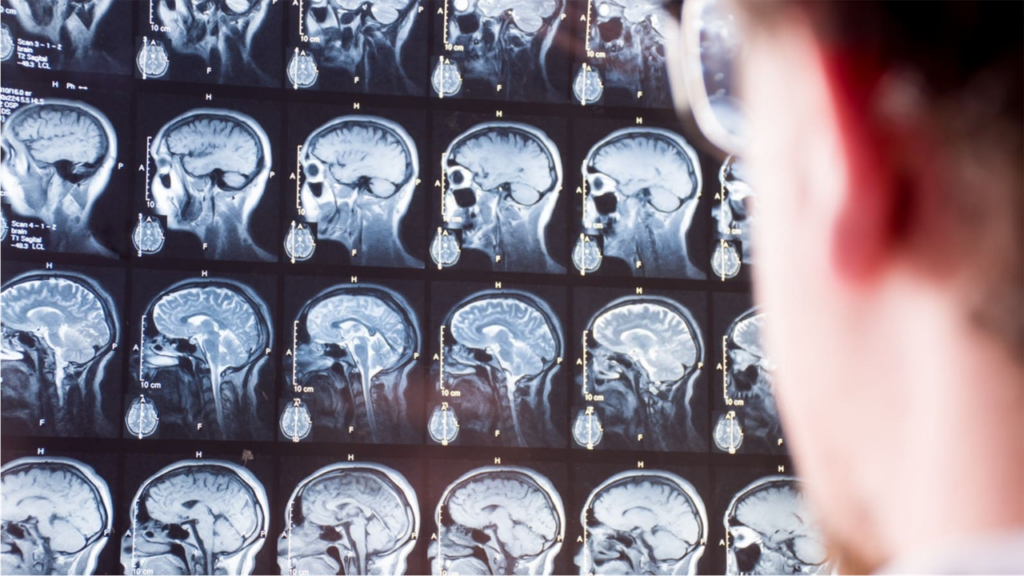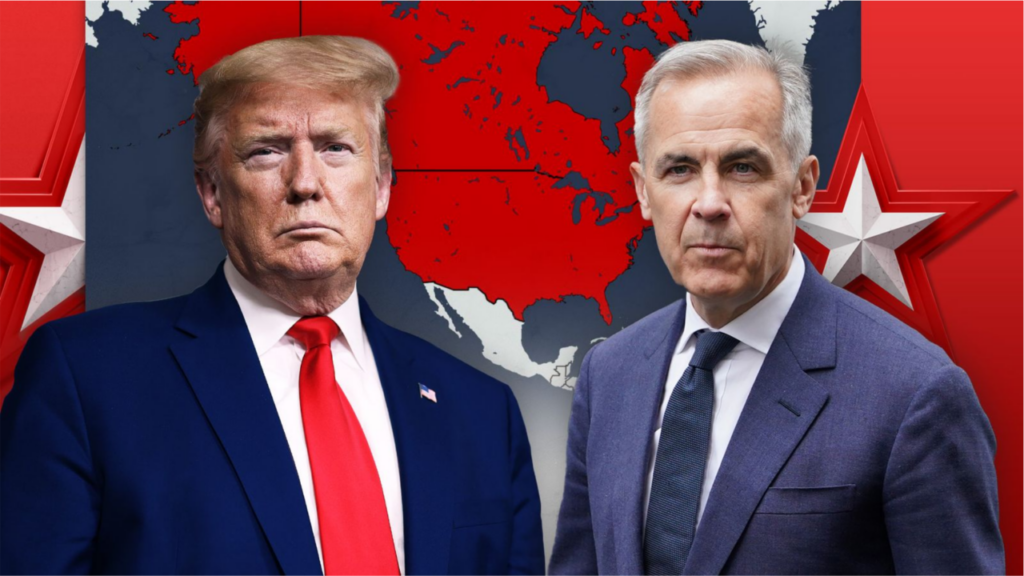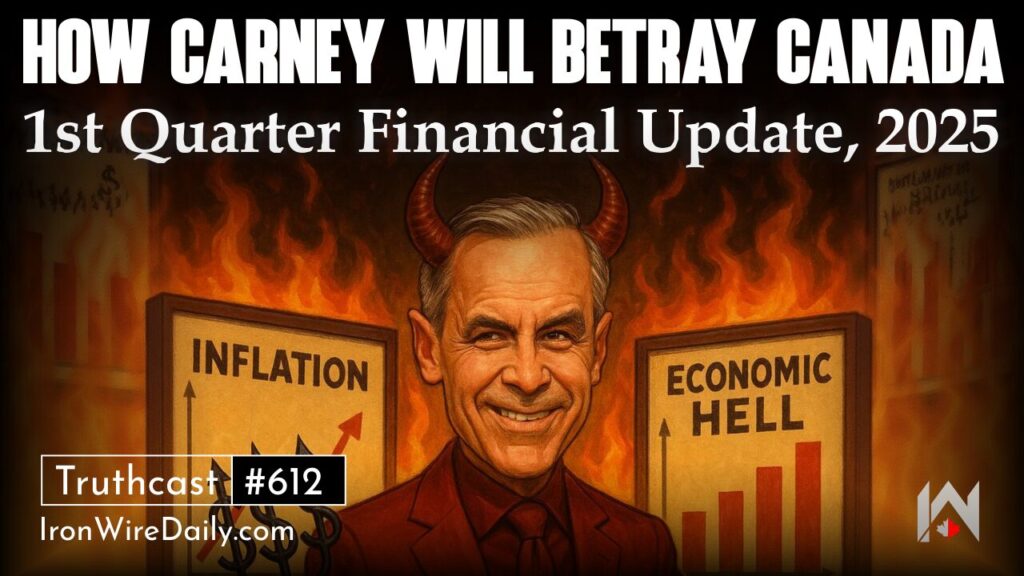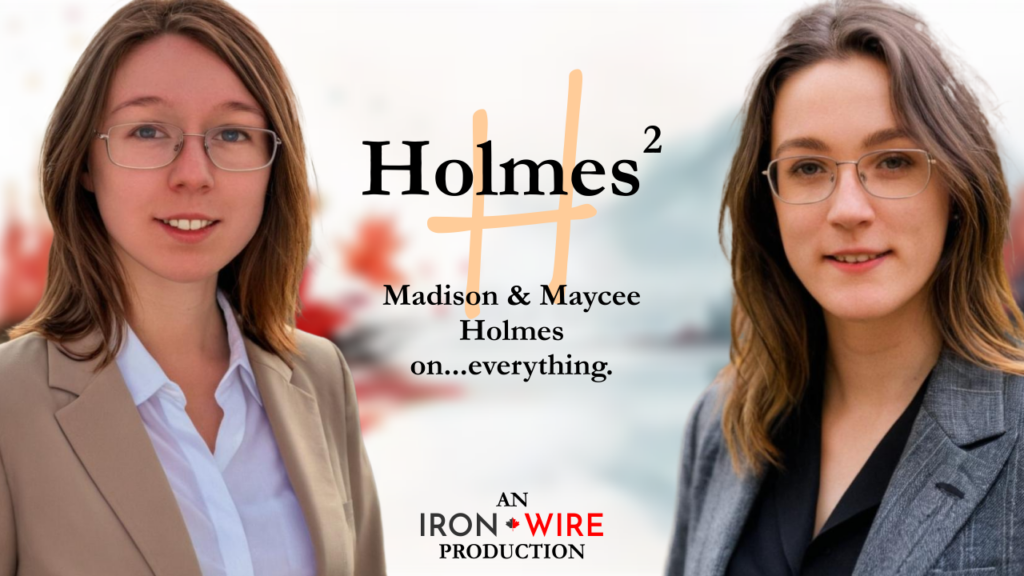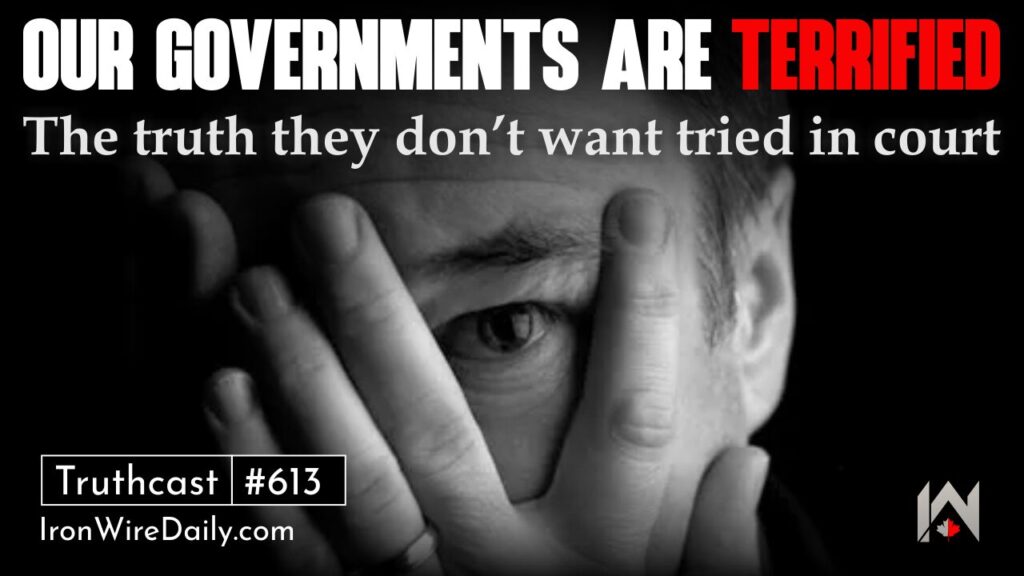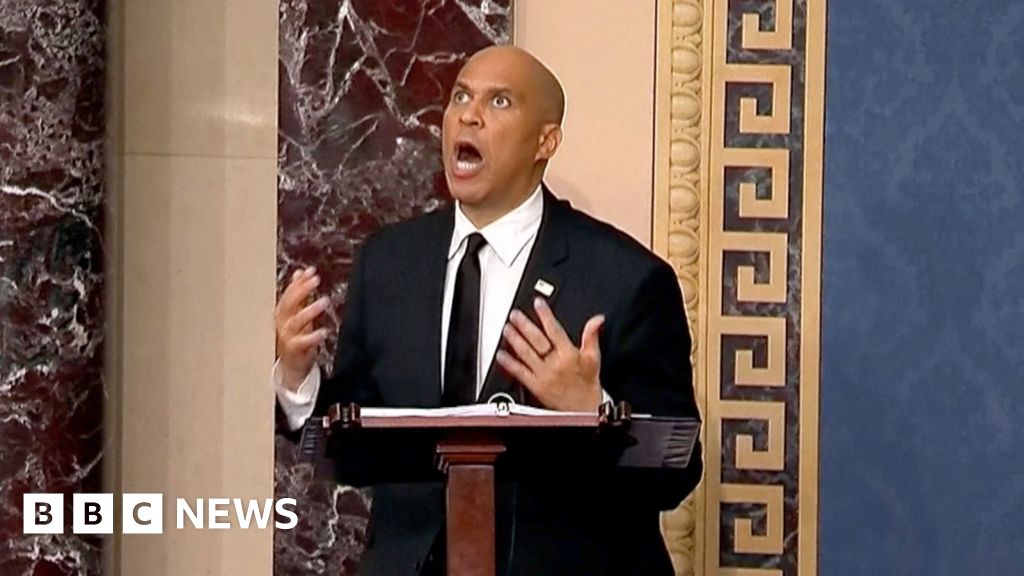AI helped cause Hollywood strikes. Now it’s in Oscar-winning films
AI was enemy No. 1 during Hollywood strikes. Now it’s in Oscar-winning films
Regan Morris
BBC News, Los Angeles

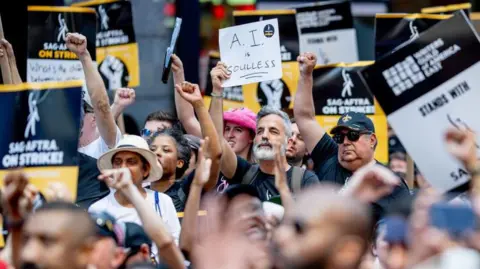 Getty Images
Getty Images
Inside a soundstage once used by silent film stars Charlie Chaplin and Mabel Normand, Hollywood executives, actors and filmmakers sipped cocktails as they marvelled at what some say is the biggest breakthrough since the talkies: AI-generated video.
But whether AI will be the future, or the end, of cinema is still up for debate.
It was only two years ago that actors and writers shut down Hollywood with strikes demanding protections from AI. Now the technology is controversially creeping into TV, movies and video games. Two films honoured at the Oscars even used the technology.
As a DJ played ’90s hip hop, computer developers rubbed shoulders actors and executives, in a sign of the changing power players in the industry.
AI in Hollywood is “inevitable”, says Bryn Mooser, the party’s host and the co-founder of Moonvalley, which created the AI generator tool “Marey” by paying for footage from filmmakers with their consent. Mr Mooser says that while AI may still be a dirty word, their product is “clean” because it pays for its content.

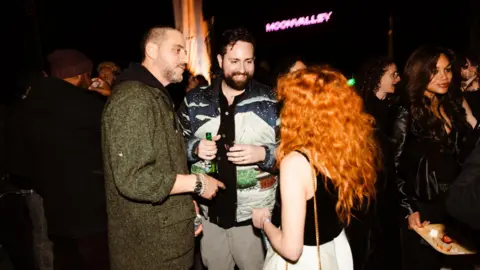 Courtesy of Joelle Grace Taylor for Asteria
Courtesy of Joelle Grace Taylor for Asteria
AI may be a dirty word in Hollywood, but Mr Mooser says their version of the technology is “clean.”
“Artists should be at the table,” he says, adding that it’s better to build the tool for filmmakers rather than get “rolled over by big tech companies”.
Artificial Intelligence has long been depicted as a villain in Hollywood. In “The Terminator,” AI used by the US military decides it must destroy everyone on Earth.
But it’s AI’s creators, and not the technology itself, that has received the brunt of real-life criticism. Companies use publicly available data to build their AI models – which includes copyrighted material shared online – and creators say they’re being ripped off.
OpenAI, Google and other tech companies are facing multiple lawsuits from writers, actors and news organizations, alleging their work was stolen to train AI without their consent. Studios like Paramount, Disney and Universal who own the copyright on movies and TV shows have been urged by writers to do the same, though none have taken legal action.
“We’ve all fought very hard for copyright laws, and nobody wants to see their work stolen to have somebody else profit from it,” Mr Mooser says.
Hollywood has begun toying with the new technology. The Oscar-nominated films Emilia Perez and The Brutalist used AI to alter voices. Adrian Brody won the Academy Award for best actor, even with the help of AI to fine tune his accent when he spoke Hungarian in his starring role in The Brutalist. AI has even been used to de-age actors like Tom Hanks and Harrison Ford.

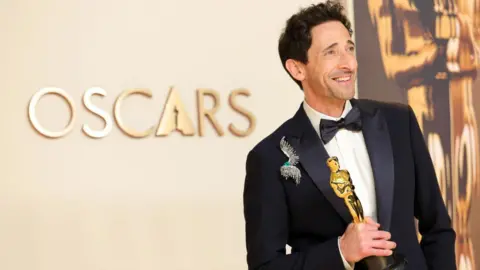 Getty Images
Getty Images
The technology is seemingly everywhere. OpenAI hosted an AI film festival in Los Angeles earlier this month. Marvel directors Joe and Anthony Russo told the Wall Street Journal they plan to invest $400 million to craft AI tools for filmmakers.
But the impacts on how it will alter the future of the entertainment industry remain unclear. Generative AI, for instance, allows computers to learn and solve problems in ways that can seem human – albeit much faster. And many worry about the technology replacing their jobs as AI is used to generate scripts, animation, locations, voices and human actors.
If you ask OpenAI’s popular chatbot, ChatGPT, which Hollywood jobs are most easily replaced by AI, background actors are top of the list as “most vulnerable” with “A-List actors & directors” considered safest because “star power and brand recognition keep top talent irreplaceable”.
At the Moonvalley party, everyone was talking about new AI technology though few wanted to speak with a reporter on record about it. But dozens of powerful people made the trek east to the hip Silver Lake neighbourhood from West Los Angeles even though it was raining. In LA, that’s remarkable.
“We’re here to learn,” said one executive who spent an hour in traffic getting to the party. “We’re not signing anything or buying anything, but we’re interested.”
Mooser and his co-founder Naeem Talukdar speak passionately about how AI will transform Hollywood and allow filmmakers to create blockbuster style epics on much lower budgets. It could lead to many bad films – but it could also help discover the next Quentin Tarantino or Martin Scorsese, even if they don’t have the backing of a big studio.
“This technology is utterly meaningless without the artist at the centre of it; the technology needs to ultimately be subservient to the artist,” says Mr Talukdar.

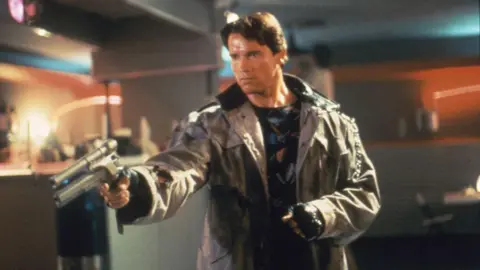 Getty Images
Getty Images
Hollywood’s foray into using AI comes as the Trump administration prepares a new AI plan for the United States.
Tech companies say they can’t compete with China under existing US copyright laws and that they need unfettered access to art – from Mickey Mouse to Moana to The Matrix – to train their AI models as a matter of national security.
Google and OpenAI want the US government to designate copyrighted art, movies and TV shows as “fair use” for them to train AI, arguing that without the exceptions, they will lose the race for dominance to China.
Hollywood filmmakers say tech companies are attempting to undermine the entertainment industry, which they point out supports more than 2.3 million US jobs.
“We firmly believe that America’s global AI leadership must not come at the expense of our essential creative industries,” a group of more than 400 Hollywood A-listers – led by actress/writer Natasha Lyonne who helped develop Moonvalley – wrote in an open letter to the Trump administration, which has been soliciting public comment for its AI Action Plan.
The letter’s signatories included A-List stars like Ben Stiller, Paul McCartney, Cate Blanchett and Lilly Wachowski, who co-created “The Matrix,” which depicts a dystopian simulated reality where humans are enslaved by intelligent machines.
Many in Hollywood remain terrified of what AI means for their futures.
Outside a Disney Character Voices office earlier this month, dozens of actors picketed against video game companies for refusing to come to an agreement on using AI in video games.
“Using actual actors is the key to a lot of the drama and enjoyment that people get from video games,” actor DW McCann said. “People have lived experiences that AI just can’t understand.”
The actors want a contract that guarantees their voices and likeness will not be used without their consent to train AI models that replace them in the future.
Mr Mooser says AI will allow filmmakers to create amazing art – if it’s done right. With humans calling the shots, he says, AI could help them create sets and worlds they couldn’t easily access or invent – and to do so much faster than what they could traditionally do with computer graphics and visual effects.
“We’re trying to say look, technology is going to be in everything. Let’s make sure that we try to fight as hard as we can to make sure that it’s done in the right way, and that artists aren’t run over by big companies.”
